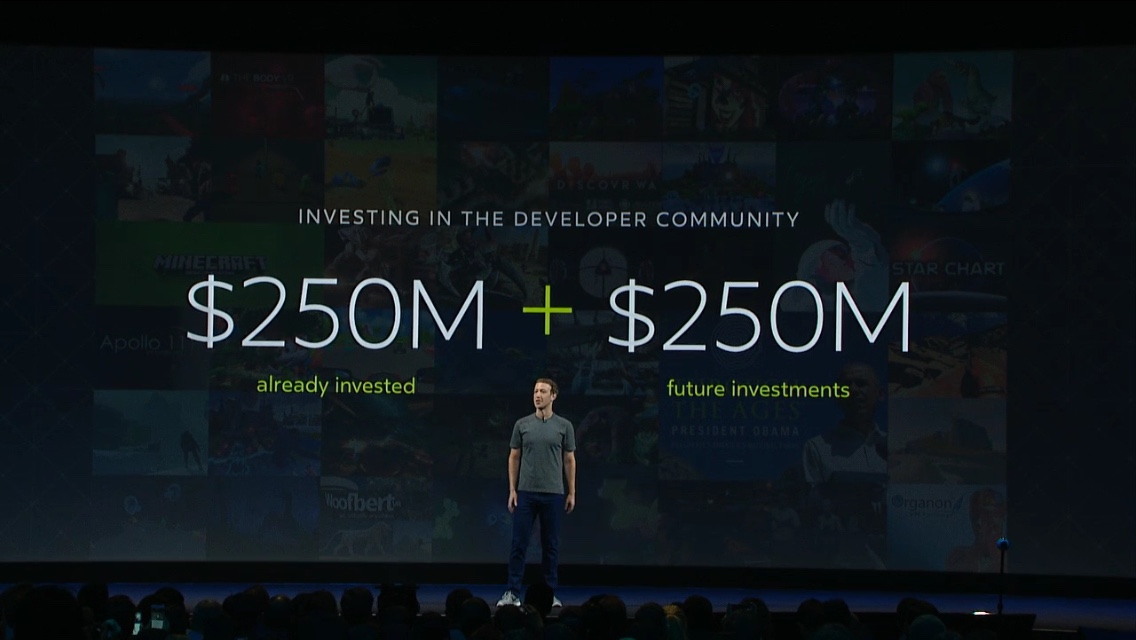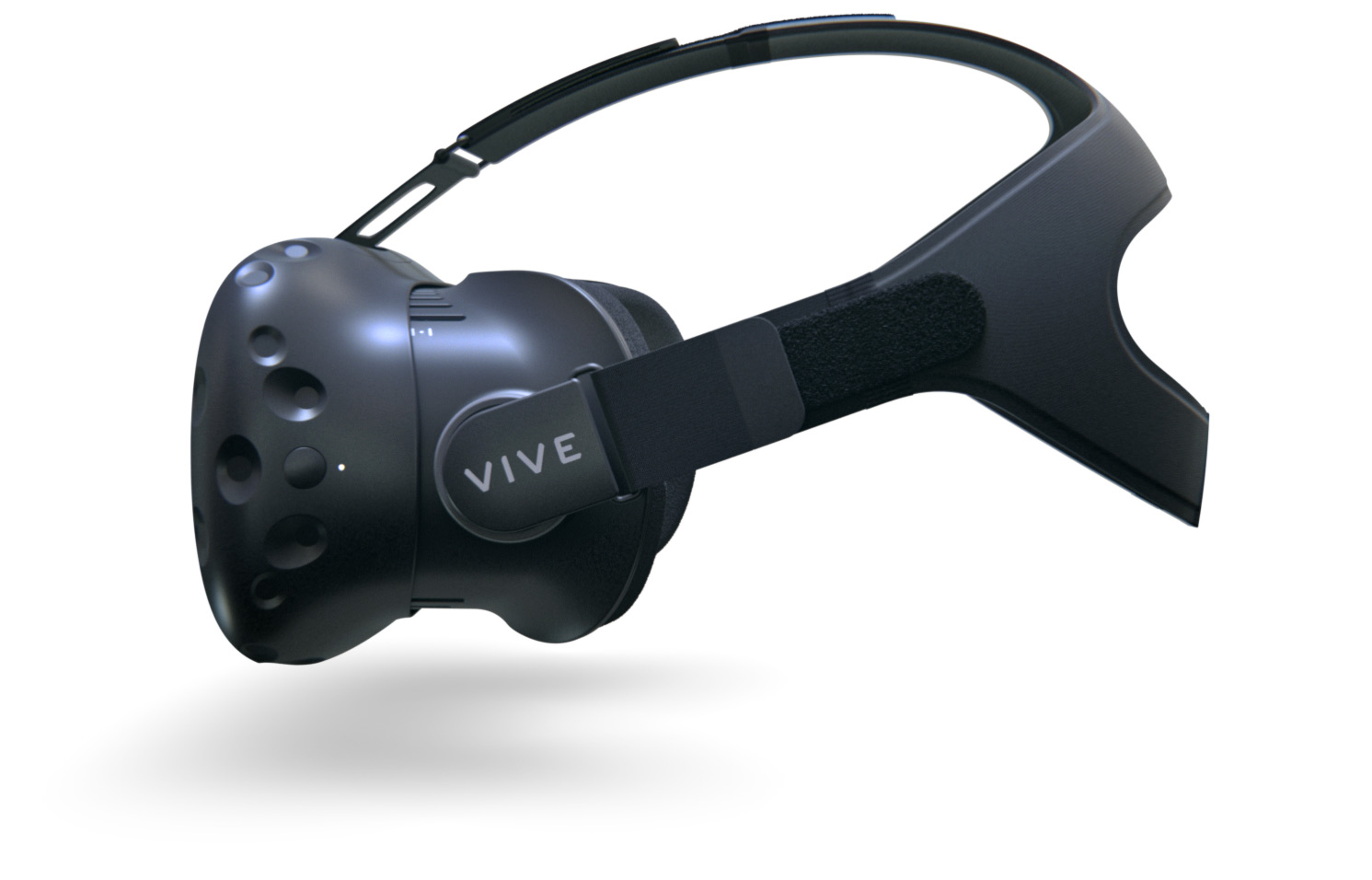Mark Zuckerberg is holding his cards close to his chest, a cigar in his mouth with a poker face that’s impossible to read.
Around him sit other, faceless tech giants. Sony, takes a respectable gamble that keeps the company in the pot without threatening to take it all. Google plays it safe in the knowledge the real payoff comes in future rounds. Samsung is giving him a glimpse of its cards while also showing others to Google, not placing all its chips in one basket. Stern-faced and determined, HTC goes all-in, playing with both its own money and that of strategic allies.
It’s a tough table, but Zuckerberg and Oculus aren’t folding or flinching. There have been a few bad hands, but Facebook can brute force its way to the top, because it just might have more money than god.
That’s my big takeaway from Oculus Connect 3, the biggest and undoubtedly best developer conference the VR specialist has put on yet. Thursday’s keynote speech was a resounding success with game-changing announcements and big surprises, but the underlying theme to it all seemed to be spending and spending big.
We saw a two hour parade of how Oculus is using Zuckerberg’s checkbook. At the start of the show, the Facebook CEO told us that it had already spent $250 million investing in the VR ‘developer community’. That means content like the new Oculus Studios titles announced this week; lavish and compelling shooters and sci-fi games with state of the art visuals. It also means helping indie developers find their feet; not as costly on an individual basis but surely nothing to scoff at considering the sheer number of developers around.
It’s a staggering figure, probably more than I would have guessed before seeing the new wave of projects on the horizion today. Surely that’s enough to help kick start a platform like the Rift? Perhaps, but in Oculus and Facebook’s eyes it’s not enough to launch VR as a whole, which is why Zuckerberg then announced another $250 million was being poured into the community.
But the money doesn’t stop there. Next generation R&D projects like the wireless Santa Cruz prototype and the work that Michael Abrash and co are doing as detailed in his incredible talk are likely costing untold millions. Keeping industry legends like John Carmack employed, selling the Rift at a loss, almost forcing Gear VR into people’s hands with free giveaways and deals; Oculus and Facebook are throwing cash around like they’re printing it.
Thinking about how much the final sum must be is, quite frankly, exhausting, and we’re only two years into the Facebook-Oculus acquisition. The foundation was almost irrelevant; Facebook could have made any VR company this big with that money.
From a quality and quantity perspective, it is fantastic news. Oculus Studios titles in particular are easily some of the best produced VR games out there. High Voltage Software’s Damaged Core remains our highest-rated title despite only using a gamepad while promising indie projects like Giant Cop can get essential funding. Oculus should also be applauded for its direct approach to diversity both inside and out of its company, committing $10 million to schemes that support under=represented creators.
But ask yourself what we’re losing in the process. In my opinion, Oculus Connect proved that the Rift will be the leader in the VR race in the very near future. Facebook is certainly spending all it can to make it that way.
That, to me, makes the possibility of something resembling a monopoly a real threat. There are going to be a lot of headsets on the market by 2017 but Oculus is the only company making VR games on the scale of Lone Echo, and it’s keeping it all to itself.
Perhaps that’s more of a plea to HTC and co to do more rather than a revisit of the exclusivity debate. Both the PlayStation 4 and Xbox One are better machines for trying to compete with each other, for example. Their libraries are constantly one-upping each other and players enjoy more great games because of it. We’re really not seeing that in the VR ecosystem yet, though it may just be taking HTC time to get this kind of content out of its accelerator programs, and Sony may want an install base before it commits resources of that magnitude.
You can see glimpses of the kind of ownership I’m talking about in that keynote — the world’s largest social network is using a Rift for its next generation of engagement, Oculus is building an entirely new web browser for the platform, the developer of Gears of War making a game that’s, as far as we know, only on Oculus. Some might see these moves as progressive, others could interpret them as Facebook starting to clench its iron fist around what it wants to be the next big computing platform.
Now, Facebook could have a change of heart. These platforms could be open to all. But considering its 360 degree services still don’t support Google Cardboard, just the Gear VR, we don’t see that happening any time soon.
Like Oculus’ VR for Good initiative, I want this industry to be a diverse and varied place. I mean that about businesses and products just as much as I do about its people and experiences. Maybe that’s dramatic; maybe we end up with a situation similar to the singular, dominant iOS operating system being matched by Android with multiple devices backed by major companies. The future could quite possibly be Oculus Home vs. Google Daydream more than it is Oculus Home vs. SteamVR.
They say you have to spend money to make money, but I’ve never seen that phrase taken to heart quite like this. You see, Facebook didn’t really spend $2 billion on Oculus. That was its buy-in to the table, now it’s time for the big bets, and Zuckerberg might just price everyone else out of the game.
































